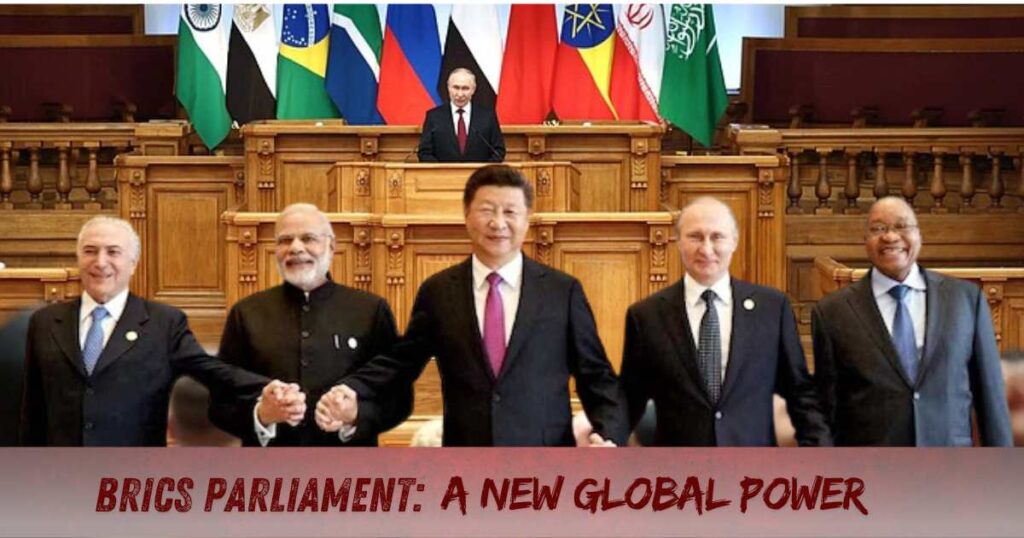In a recent statement that has captured global attention, Russian President Vladimir Putin announced the ambitious idea of forming a BRICS parliament. This proposed institution would bring together leaders from BRICS member countries—Brazil, Russia, India, China, and South Africa, and new additions like the UAE and Saudi Arabia—creating a unique multinational parliamentary body. If realized, this could be the first parliament in history representing such a diverse array of languages, cultures, and regions.
Putin’s Ambitious Plan for BRICS Parliament
Putin’s announcement was not a mere offhand remark; it was a declaration of intent. Speaking at the BRICS Parliamentary Forum, he emphasized the need for a BRICS parliamentary entity, asserting that while such an institution does not yet exist, it will be established soon. This would parallel the European Union’s parliament, which currently stands as the only multinational parliament globally with representation from multiple countries.
A Diverse and Powerful Assembly
The proposed BRICS parliament would be a formidable entity. Imagine a parliament where representatives from Russia, India, China, and other BRICS nations convene. This would be the world’s largest parliament in terms of population representation, with BRICS countries collectively accounting for approximately 3.5 billion people—nearly 40-45% of the global population.
A key aspect of this parliament would be its structure and representation. Typically, in multinational parliaments like the European Union, representation is proportional to the population. However, BRICS operates on a principle of consensus, ensuring equal voice for all member countries, regardless of size. This means that even countries with smaller populations would have significant influence, preventing dominance by larger nations like India and China.
Governance and Functionality
How would this BRICS parliament function? Drawing parallels with the European Union’s parliament, which deliberates on policies, sanctions, and international agreements, the BRICS parliament would likely engage in similar activities. Members of parliament from each country would have voting rights on various issues, such as BRICS trade policies, sanctions, and cultural events like the BRICS Games.
One challenge is the varying political systems within BRICS. While countries like India have robust democratic processes, others like Russia and China have different governance models. Ensuring fair representation and voting integrity will be crucial.
Geopolitical Implications
The formation of a BRICS parliament would significantly impact global geopolitics. It would symbolize a shift away from Western-dominated international institutions, offering an alternative power bloc with substantial influence. This move aligns with Russia’s broader strategy to strengthen ties with non-Western countries amidst ongoing tensions with the West.
For the United States, the establishment of a BRICS parliament would be a development of considerable interest. The U.S. would likely scrutinize India’s stance, given India’s democratic credentials and pivotal role in the BRICS group. Washington might also explore the long-term strategic implications of such a parliament on global trade, security, and diplomatic relations.
A New Era of International Cooperation?
The idea of a BRICS parliament raises numerous questions. How would this institution navigate the complex dynamics between member countries, especially given historical tensions like those between India and China? Would the parliament enhance cooperation and reduce conflicts within BRICS, or could it exacerbate existing issues?
Call to Action: Share Your Thoughts
What do you think about the possibility of a BRICS parliament? Could it foster greater international cooperation, or would it face insurmountable challenges? How might this new institution affect global geopolitics and the balance of power?
Share your thoughts in the comments below—we’d love to hear from you!

